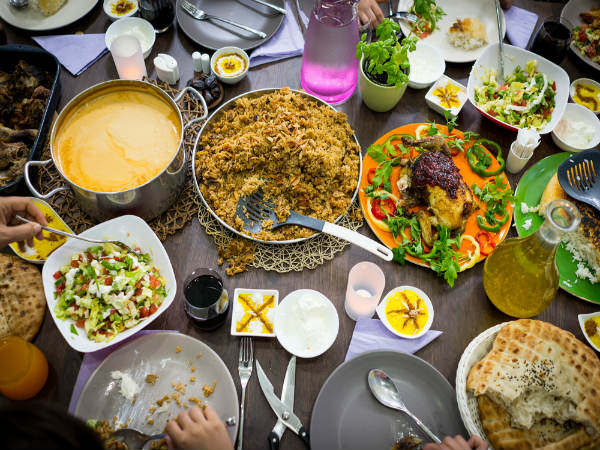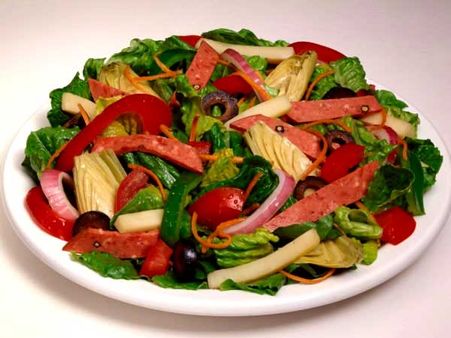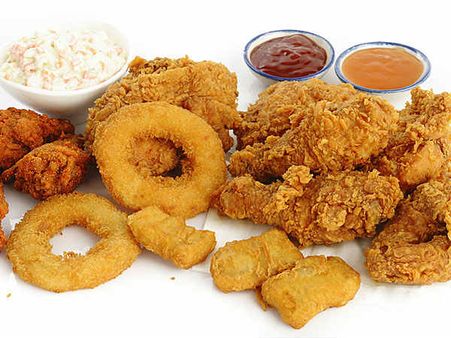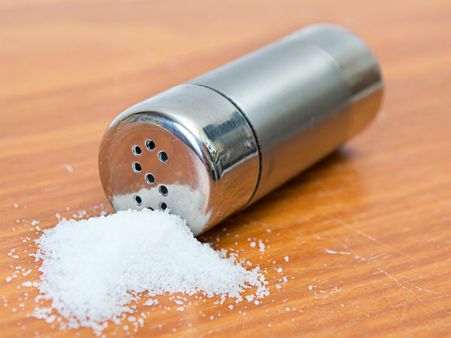Just In
- 58 min ago

- 4 hrs ago

- 7 hrs ago

- 9 hrs ago

Don't Miss
- Sports
 IPL 2024: 'Nothing To Do With Mental Health' - Glenn Maxwell Clarifies His Absence From RCB Playing 11
IPL 2024: 'Nothing To Do With Mental Health' - Glenn Maxwell Clarifies His Absence From RCB Playing 11 - News
 Karnataka Weather Alert: Will Bengaluru See Rain Before May?
Karnataka Weather Alert: Will Bengaluru See Rain Before May? - Finance
 Tata Motors To Utilize New $1 Billion TN Plant For Jaguar Land Rover Cars
Tata Motors To Utilize New $1 Billion TN Plant For Jaguar Land Rover Cars - Movies
 Very Parivarik Episode 5 OTT Release Date, Platform: Get Ready For Major Twist; Here's When & Where To Watch
Very Parivarik Episode 5 OTT Release Date, Platform: Get Ready For Major Twist; Here's When & Where To Watch - Technology
 AMD Revamps Business Computing with AI-Fueled Ryzen PRO 8000 Series Processors
AMD Revamps Business Computing with AI-Fueled Ryzen PRO 8000 Series Processors - Education
 RMLIMS Nursing Officer Recruitment 2024; Apply for 665 Vacancies, Know more
RMLIMS Nursing Officer Recruitment 2024; Apply for 665 Vacancies, Know more - Travel
Telangana's Waterfall: A Serene Escape Into Nature's Marvels
- Automobiles
 The Rezvani Retro RR1 Is A Modified Porsche 911 Done Right
The Rezvani Retro RR1 Is A Modified Porsche 911 Done Right
Eid ul-Fitr 2020: How To Prevent Binge-eating And Indigestion On This Day

After a month of fasting during Ramadan, it doesn't come across as a surprise that people indulge and devour food which usually leads to binge eating.
Although it's a celebratory occasion, fasting for 30 days and binge eating on Eid could have serious health implications.
Not only will this lead to gastric disorders, that can potentially make life very bothersome, but it also could result in rapid weight gain for some people.

Apart from this, people usually go through some short term depressive symptoms like guilt, worthlessness and irritability due to overeating during Eid. This year Eid-Ul-Fitr will be celebrated from the evening of 23 May to the evening of 24 May.
Quite simply, since the body has been receiving food after long intervals during Ramadan, the body is in storage physiology. The body stores the food and conserves it as it knows that the next meal it receives is going to be after a prolonged interval.
So after 30 days, the body is still adjusted to this physiology. Hence, when the mind is presented with food, it tends to over-eat taking in as much food as possible, still assuming the body has to wait for hours together for the next meal.
Eating more than your body can handle may lead to indigestion and breathlessness caused due to the stomach pressing up against the diaphragm. In rare cases, the stomach can be damaged and even tear.
Follow the below-mentioned tips to avoid binge eating during Eid.

1. Start With Salad
Not only is it healthy to eat salad, but starting the meal with salad also fills up your stomach a bit. This will help avoid irrational binge eating during the main course and desserts. This can also help boost metabolism and gets your digestive system up and running.

2. Avoid Too Much Of Greasy Food
Greasy foods are damaging as it is. Consuming it when your body and digestive system are weak is not recommended at all. Consuming a lot of greasy food can damage the lining of the stomach, especially in the vulnerable state that it is in after 30 days of fasting. Too much greasy food causes indigestion as well. Not something that you want to have after just having recovered from a month's strict regime.

3. Be Careful About Salt Intake
Too much of salt increases blood pressure and can be detrimental to your heart merely because it hasn't been used to these levels of pressure for a month. This is absolutely important to follow for people with heart conditions.

4. Have A Balanced Meal
Including a balanced proportion of carbohydrates, protein and vegetables is essential. Ideally your plate should be filled with half a portion of vegetables, a quarter portion of protein and a quarter portion of carbohydrates.
When you choose carbohydrates, try consuming complex carbohydrates like whole wheat bread, brown rice, pulses, etc. And although it tastes delicious, cutting off the fat from fish and meat is extremely beneficial to avoid any indigestion during Eid.

5. Do Not Over-eat
Simplicity is often overlooked these days. Simply telling yourself not to over-eat will get rid of majority of the problems. One of which is indigestion. Quite simply, if there's not that much food to digest, there are lesser chances of indigestion.

6. Drink Plenty Of Water
Your glycogen levels would be all over the place after the nerve-racking 30 days of fasting. Keeping yourself hydrated will replenish glycogen levels and also keep you feeling more vibrant and fresh.
Following the above tips will help you enjoy Eid with your family and friends, as opposed to spending it in the washroom or emergency room. Choose wisely and enjoy the glorious and beautiful day of Eid-ul-fitr.
-
 yoga spiritualityRamadan 2024: Why Is Taraweeh Prayer So Special? Can You Offer Taraweeh Prayers At Home?
yoga spiritualityRamadan 2024: Why Is Taraweeh Prayer So Special? Can You Offer Taraweeh Prayers At Home? -
 yoga spiritualityRamadan 2024: What Are First Ashra Dua, Second Ashra Dua, And Third Ashra Dua During Ramzan
yoga spiritualityRamadan 2024: What Are First Ashra Dua, Second Ashra Dua, And Third Ashra Dua During Ramzan -
 yoga spiritualityRamadan 2023: Rules For Unmarried Couples: Kissing, Touching, Physical Intimacy During Month Of Fasting
yoga spiritualityRamadan 2023: Rules For Unmarried Couples: Kissing, Touching, Physical Intimacy During Month Of Fasting -
 yoga spiritualityRamadan 2023: Date, Moon Sightings, Significance Of Fasts, And Why It Is Considered A Holy Month
yoga spiritualityRamadan 2023: Date, Moon Sightings, Significance Of Fasts, And Why It Is Considered A Holy Month -
 bollywood wardrobeEid ul-Fitr 2021: Gauahar Khan Looks Gorgeous In Her Festive-Perfect Mulmul Kurta Set; Know The Price!
bollywood wardrobeEid ul-Fitr 2021: Gauahar Khan Looks Gorgeous In Her Festive-Perfect Mulmul Kurta Set; Know The Price! -
 bollywood wardrobeEid ul-Fitr 2021: Top 3 Festive Red Kurta Sets For Eid Ft. Gauahar Khan, Mouni Roy, And Aditi Rao Hydari
bollywood wardrobeEid ul-Fitr 2021: Top 3 Festive Red Kurta Sets For Eid Ft. Gauahar Khan, Mouni Roy, And Aditi Rao Hydari -
 festivalsRamadan 2023: Myths And Facts About Ramadan Fasting
festivalsRamadan 2023: Myths And Facts About Ramadan Fasting -
 festivalsRamadan 2023: Sehri And Iftar Timings That You Need To Know
festivalsRamadan 2023: Sehri And Iftar Timings That You Need To Know -
 bollywood wardrobeEid-Ul-Fitr 2020: Hina Khan, Sara Ali Khan And Other B-Town Divas Give Ethnic Fashion Goals In White
bollywood wardrobeEid-Ul-Fitr 2020: Hina Khan, Sara Ali Khan And Other B-Town Divas Give Ethnic Fashion Goals In White -
 make up tipsLook Gorgeous With These Ramzan-special Beauty Tips
make up tipsLook Gorgeous With These Ramzan-special Beauty Tips -
 wellnessRamadan 2023: Health Benefits And Risks Of Fasting During Ramadan
wellnessRamadan 2023: Health Benefits And Risks Of Fasting During Ramadan -
 diabetesRamadan And Diabetes: Risks And Solutions
diabetesRamadan And Diabetes: Risks And Solutions


 Click it and Unblock the Notifications
Click it and Unblock the Notifications



